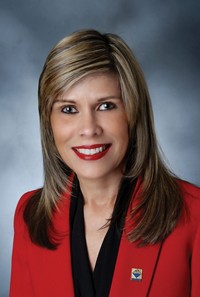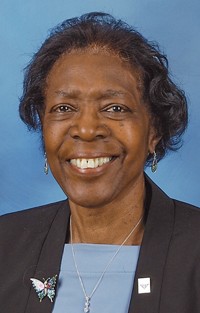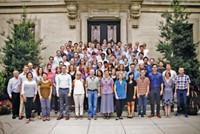Advertisement
Grab your lab coat. Let's get started
Welcome!
Welcome!
Create an account below to get 6 C&EN articles per month, receive newsletters and more - all free.
It seems this is your first time logging in online. Please enter the following information to continue.
As an ACS member you automatically get access to this site. All we need is few more details to create your reading experience.
Not you? Sign in with a different account.
Not you? Sign in with a different account.
ERROR 1
ERROR 1
ERROR 2
ERROR 2
ERROR 2
ERROR 2
ERROR 2
Password and Confirm password must match.
If you have an ACS member number, please enter it here so we can link this account to your membership. (optional)
ERROR 2
ACS values your privacy. By submitting your information, you are gaining access to C&EN and subscribing to our weekly newsletter. We use the information you provide to make your reading experience better, and we will never sell your data to third party members.
Careers
Coaching Success
Committee on the Advancement of Women Chemists expands its programs for academics
by PAMELA S. ZURER, C&EN WASHINGTON
February 28, 2005
| A version of this story appeared in
Volume 83, Issue 9
The word of mouth is good. Four years after the Committee on the Advancement of Women Chemists (COACh) offered its first leadership workshops for women chemistry faculty, news of the workshops' impact has spread to the physics, computer science, geology, and math communities. Organizations serving minority scientists are working with COACh. Requests are coming in for programs in other countries. And having already expanded its reach to include postdocs, COACh is planning programs for graduate students.
At the same time, the organization is developing additional strategies to advance its goal of increasing the number and success of women chemists in academia. One new program is designed to foster institutional change as a means of breaching the barriers keeping women chemists from reaching their goals.
COACh--originally supported by the Camille & Henry Dreyfus Foundation and since funded by the Department of Energy, the National Science Foundation, and the National Institutes of Health--aims to address the documented disparity in hiring and promotion of women in academic chemistry departments, COACh Chair Geraldine L. Richmond notes. A professor of chemistry at the University of Oregon, Richmond is the 2005 winner of the ACS Award for Encouraging Women into Careers in the Chemical Sciences (C&EN, Jan. 31, page 49).
The concerns that sparked a group of senior women chemists to found COACh six years ago continue to fester. Just last month, Harvard University President Lawrence H. Summers provoked a brouhaha when his remarks suggested that innate differences between men and women might explain the paucity of women in science (see page 3).
"Whatever the reasons, it's clear that something is causing women not to apply for positions in research universities," Richmond says. "We need to get the application pool up."
To address bias in the institutional environment, COACh is developing an Academic Leadership Forum. The forum will offer deans, department heads, and directors of academic research institutes and centers a series of sessions on faculty recruitment and development, leadership dynamics, and other issues that are key to creating a supportive and inclusive culture.
"How do you create an academic climate that makes your people even more successful?" Richmond asks. "A climate that enhances scholarly success because your faculty feels empowered?"
The forum will be led by the same facilitators who run the professional development workshops that are COACh's most visible project. Since 2001, COACh has been offering these daylong workshops prior to American Chemical Society and American Institute of Chemical Engineers (AIChE) national meetings. At both venues, the Saturday sessions are followed by networking receptions open to all who are interested.
At the workshops, the participants learn strategies for leading and participating in discussions and meetings. They also are trained in effective negotiation and leadership techniques.
In follow-up research, women who have attended the workshops report they have put the skills they learned to use in negotiating salaries, teaching loads, laboratory space, and promotions. More than 90% say they are experiencing less workplace stress.
"What I'm most proud of," Richmond says, "is that 95% of the women chemists who have participated in the COACh workshops report they have gone on to mentor other women."
Originally targeting tenured women professors, COACh quickly opened the workshops to junior faculty members. More recently, it has held workshops for postdoctoral associates, where much of the emphasis is on how to negotiate a first job. Traveling workshops aimed at women graduate students, who are less likely to attend ACS meetings, are under development.
ALL TOLD, 211 women chemistry faculty members and 38 postdocs have participated in COACh-sponsored workshops at ACS and AIChE meetings, according to Richmond. In addition, the facilitators have been hired to present the workshops at other professional societies and institutions, reaching another 500-plus women. The American Physical Society, for example, is hosting the sessions at its national meetings in March and April.
Next year, COACh plans to offer its workshops at the annual meetings of the National Organization for the Professional Advancement of Black Chemists & Chemical Engineers (NOBCChE) and the Society for Advancement of Chicanos & Native Americans in Science. The content, Richmond says, will be adjusted to address issues of particular relevance to minority participants.
"NOBCChE prides itself on providing our membership the resources and networks that facilitate their development as scientists," notes NOBCChE President Marquita M. Qualls, principal scientist for pharmaceutical development at GlaxoSmithKline. "We are pleased to be able to partner with COACh to expand the outreach of these invaluable workshops to women navigating the academic environment."
Richmond is also working with women scientists in England and Germany and has begun having conversations about possible programs in Latin America. "We're trying to see ways we can reach out," she says. "Word of mouth is spreading the news about COACh's success at an amazing rate."
COACh's signature professional development workshops for women chemistry faculty members will run in San Diego on March 12, the Saturday prior to the ACS national meeting. COACh offers support for travel and housing expenses for participants who need assistance. For further information and to apply, visit the COACh website at http://coach.uoregon.edu.






Join the conversation
Contact the reporter
Submit a Letter to the Editor for publication
Engage with us on Twitter